Feature: Championing peer support
Unique in Canada, the Peers for Peers program at Schulich Medicine & Dentistry provides one-on-one support for clinical faculty, building on mounting evidence that conversations with peers enhance wellness and build resilience.
Meet six faculty leaders serving as champions and Wellbeing Leads for the Peers for Peers program. Learn about their experiences providing emotional support and resources to clinical colleagues across the School.
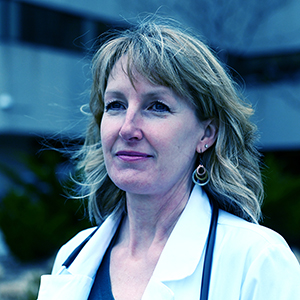 Dr. Karen Bosma
Dr. Karen Bosma
Associate Professor, Department of Medicine
"In 2020, I saw a real banding together to get things done. It was an incredibly productive and collaborative time in Critical Care. Everyone pitched in to help organize and prepare for the surge in ICU cases, and then worked so hard on additional call lines to manage all the patients. I witnessed a lot of resiliency, communication and teamwork."
Dr. Karen Bosma is an Associate Professor and critical care physician at London Health Sciences Centre. She serves as a Wellbeing Lead with the Schulich Medicine & Dentistry's Peers for Peers program, providing emotional support and resources to clinical colleagues in the Division of Critical Care Medicine
"Peer support is not the entire answer but rather a ‘cog in the wheel’ of promoting physician well-being. It means a great deal to me when my peers reach out to chat. It provides me the opportunity to connect with my colleagues, hear their stories, and try to walk alongside them."
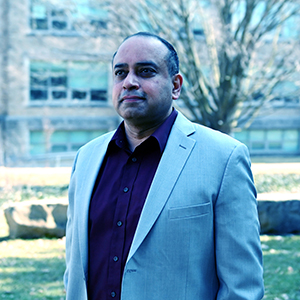 Dr. Sumit Davé
Dr. Sumit Davé
Professor, Department of Surgery
"It is interesting that even though we learn to listen before we learn to talk, nobody teaches us how to be an active listener."
Dr. Sumit Davé is a Professor and urologist at Lonodn Health Sciences Centre. He serves as a Wellbeing Lead with the Peers for Peers program at Schulich Medicine & Dentistry, providing emotional support and resources to clinical colleagues in the Department of Medicine.
"The training curriculum created by the Peers for Peers program and the interactions with other peer supporters helps immensely – we all are trying to listen well and express genuine empathy and recognition of the issues our colleagues are facing."
Davé is also the Program Director for Urology’s residency program. He says he participates as a peer supporter as a small contribution to his colleagues, who have had a significant impact on his own academic journey and well-being.
"It is such a simple but brilliant idea with significant impact. Our School should be proud of this initiative. I believe it has a positive impact on me personally and has brought a sense of community and camaraderie across all our clinical departments."
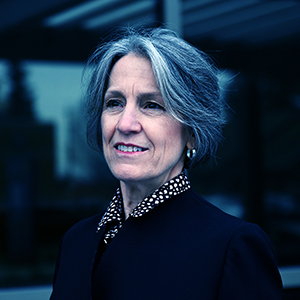 Dr. Chandlee Dickey
Dr. Chandlee Dickey
Chair/Chief, Department of Psychiatry
“There’s still a lot of stigma. It’s very hard for someone to say to themselves that they are struggling and need help. The Peers for Peers program is an acknowledgement that physicians suffer, that we can lean on each other when we’re struggling and together, help each other out.
It underscores this idea that people aren’t alone in things, that we’re a community that cares about one another.”
Dr. Chandlee Dickey is the Chair/Chief of the Department of Psychiatry at Schulich Medicine & Dentistry, London Health Sciences Centre and St. Joseph's Health Care London. She has been a leader and champion for the School’s Peers for Peers program, which provides one-on-one peer support for clinical faculty.
She has also helped facilitate the training curriculum for Wellbeing Leads and helps direct referrals when the need arises.
“This is a more preventative approach that we can all contribute to. Because the barriers to calling a colleague are not as high, people can reach out when things aren’t so bad – when they’ve had a frustrating or upsetting day or a difficult case – rather than try to muddle through and pull themselves up by the bootstraps.
It makes it easier to take the next shift, to see the next patient, to continue the drive home after work. It normalizes peoples’ difficult experiences and gives us hope.”
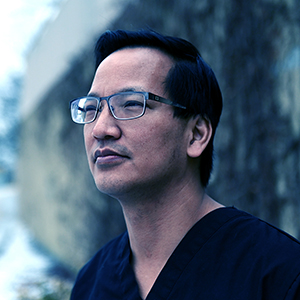 Dr. Rodrick Lim
Dr. Rodrick Lim
Associate Professor, Department of Paediatrics
“There were many aspects and areas of medicine that were already quite unhealthy, and the pandemic magnified the need tremendously. From personal safety to financial hardship to family well-being, it didn’t leave a stone unturned.”
Dr. Rodrick Lim is an Associate Professor and Site-Chief of the Paediatric Emergency Department at London Health Sciences Centre. He serves as a Wellbeing Lead with Schulich Medicine & Dentistry's Peers for Peers program, providing emotional support and resources to clinical colleagues in the Department of Paediatrics.
“It can be difficult for people to reach out for support, trusting that it will be confidential and won’t cause repercussions. As a peer supporter, I offer an empathetic listening ear for colleagues to help them work through their difficulties and provide a path for additional help if needed. I can understand and anticipate situations that are particularly stressful, situations that are not always understood outside the immediate professional circle.”
Lim also sits on the School’s executive wellness committee and was involved in developing the training curriculum for Wellbeing Leads.
“I want to highlight the incredible people acting as Wellbeing Leads, as they themselves are under significant stress. They’re giving freely of themselves because they believe in this important program. There’s something very beautiful in that.”
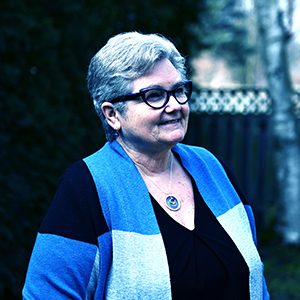 Dr. Terri Paul
Dr. Terri Paul
Professor, Department of Medicine
“We don't have all the solutions, but we can support each other to thrive in our challenging career. It is important to champion the peer support program so our colleagues know that they can reach out to a nonjudgmental colleague who is there to listen and help guide them.”
Dr. Terri Paul is a Professor and endocrinologist based at St. Joseph's Health Care London. She has been involved with Schulich Medicine & Dentistry's Peers for Peers program since its inception in early 2020, first as the interim Assistant Dean for Faculty Equity Wellbeing and now serving as a Wellbeing Lead for the Division of Endocrinology.
“I find in many of my sessions I am just providing an empathetic ear for colleagues to talk about the stresses in their life and career. That is often enough for them to feel validated, to feel like their issues have been heard and to have someone confirm that their concerns are legitimate.”
Throughout her career, Paul has been closely involved with undergraduate and postgraduate medical education, including leading initiatives to support learner wellness. “Issues of wellbeing and support for learners and my peers have always been important to me.”
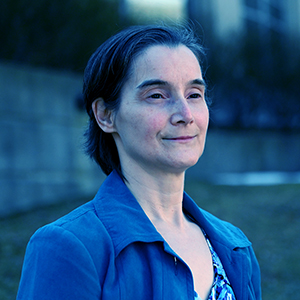 Dr. Michele Weir
Dr. Michele Weir
Professor, Department of Pathology and Laboratory Medicine
Dr. Michele Weir is a Professor and pathologist at London Health Sciences Centre. She serves as a Wellbeing Lead with the Peers for Peers program at Schulich Medicine & Dentistry, providing emotional support and resources to clinical colleagues in the Department of Pathology and Laboratory Medicine.
"The pandemic has shaped all of us and impacted everyone differently. Some people experience resilience and strength, others experience distress, and many experience periods of resilience and distress in waves. I also see courage, bravery, altruism, a sense of purpose, gratitude, compassion, caring and connection to balance out the negative feelings.
Peers for Peers speaks to caring about providers’ well-being and wellness as humans, it shows that we are seen, heard and valued."
For more information about the Peers for Peers program, please contact faculty.wellbeing@schulich.uwo.ca.








